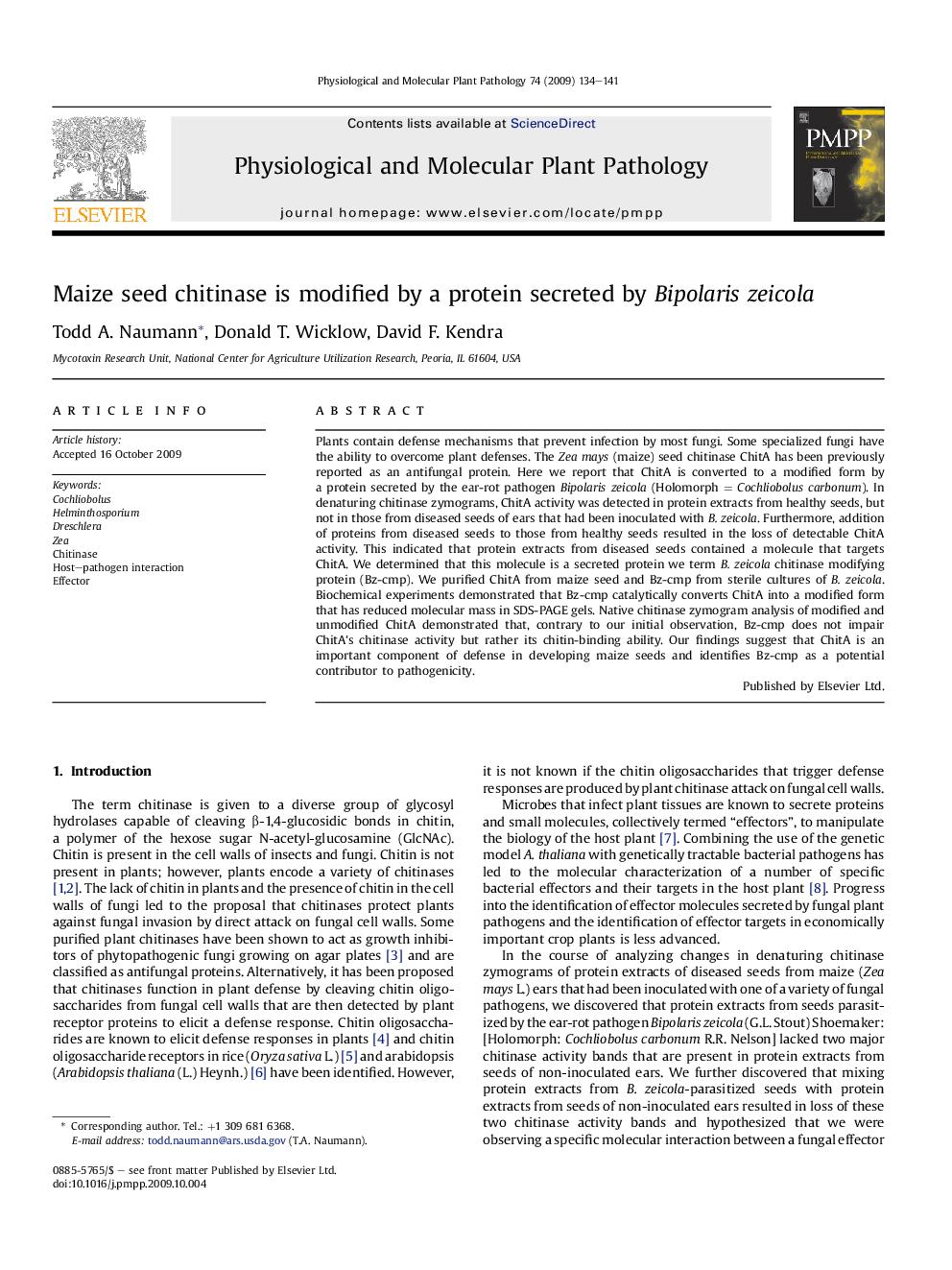| Article ID | Journal | Published Year | Pages | File Type |
|---|---|---|---|---|
| 2836645 | Physiological and Molecular Plant Pathology | 2009 | 8 Pages |
Plants contain defense mechanisms that prevent infection by most fungi. Some specialized fungi have the ability to overcome plant defenses. The Zea mays (maize) seed chitinase ChitA has been previously reported as an antifungal protein. Here we report that ChitA is converted to a modified form by a protein secreted by the ear-rot pathogen Bipolaris zeicola (Holomorph = Cochliobolus carbonum). In denaturing chitinase zymograms, ChitA activity was detected in protein extracts from healthy seeds, but not in those from diseased seeds of ears that had been inoculated with B. zeicola. Furthermore, addition of proteins from diseased seeds to those from healthy seeds resulted in the loss of detectable ChitA activity. This indicated that protein extracts from diseased seeds contained a molecule that targets ChitA. We determined that this molecule is a secreted protein we term B. zeicola chitinase modifying protein (Bz-cmp). We purified ChitA from maize seed and Bz-cmp from sterile cultures of B. zeicola. Biochemical experiments demonstrated that Bz-cmp catalytically converts ChitA into a modified form that has reduced molecular mass in SDS-PAGE gels. Native chitinase zymogram analysis of modified and unmodified ChitA demonstrated that, contrary to our initial observation, Bz-cmp does not impair ChitA's chitinase activity but rather its chitin-binding ability. Our findings suggest that ChitA is an important component of defense in developing maize seeds and identifies Bz-cmp as a potential contributor to pathogenicity.
